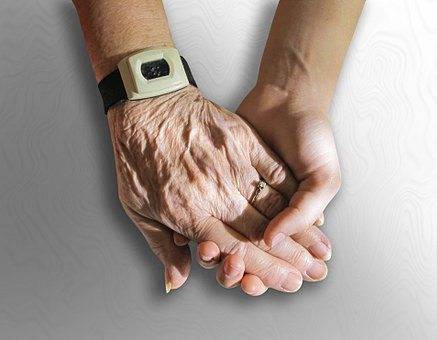https://naviga.triblive.com/opinion/donna-pierantoni-home-care-crisis-impact-on-disabled-adults-seniors/
Donna Pierantoni: Home care crisis’ impact on disabled adults, seniors

Home health aides provide valuable and compassionate home care services to seniors and adults with disabilities that enable them to remain safe at home and out of nursing homes. As a clinical manager who oversees a team of home health aides, I know our state is in a home care crisis, and implore the Legislature to increase funding to the state’s Personal Assistance Services (PAS) program by 10% as soon as possible.
Pennsylvania is the fourth most rapidly aging state, and demand for aides is growing exponentially. With wages increasing for jobs in food service and retail, it’s extremely difficult to hire and retain enough aides to meet demand.
The people home health aides serve depend on their services usually because they live alone, a family member is employed, or a family member needs help due to fatigue or inability to perform all the tasks necessary to keep their loved one safe and healthy at home.
Home care offers both residents and the state what they want: It allows people to age in place safely and independently, it keeps families together, and it keeps Pennsylvanians out of nursing homes that cost the state’s Medicaid program much more money. But this care is dependent on the state making sure that agencies have the proper funding to offer home health aides a living wage. We urgently need the state Legislature to make a wage increase a top priority.
Right now, the state’s low Medicaid reimbursement rates often prevent the elderly and disabled from receiving quality care required in their homes because providers cannot properly staff cases. Home health care providers cannot attract enough quality aides at the wages they can offer. As aides take jobs in fast food and retail, the lack of caregivers means unfilled shifts, which can put vulnerable people in danger — they may sleep in wheelchairs, be unable to get out of bed, or miss meals and medications.
Between 2015 and 2018, the turnover rate for home health aides went from 50% to 88%, exceeding the national turnover rate of 82%, as less demanding and less stressful jobs pay more. The state is responsible for funding the PAS program and for ensuring that there are enough aides to care for residents within the program. The state established the PAS rates in 2012 and raised them once, by 2%, in 2014. At the same time, the cost of living and agencies’ costs — taxes, worker’s comp, training, onboarding, criminal background checks (which have gone up from $8 to $22 per check), equipment and supplies — have gone up by much more than 2%.
If the state were to increase funding by 10%, home care providers would be able to increase the pool of caregivers and better keep up with the demand. The issue is becoming more dire as our state’s population continues to grow older while caregiver turnover continues to increase.
The Legislature needs to support a wage increase. I urge our legislators and Gov. Tom Wolf to consider the many seniors and disabled adults who need this care and make the right decision to ensure that agencies can pay aides a living wage and continue to provide the services needed to keep our most vulnerable populations at home.
Copyright ©2026— Trib Total Media, LLC (TribLIVE.com)
